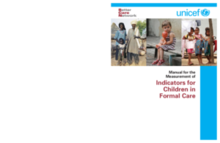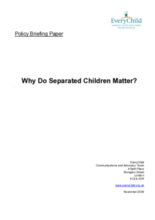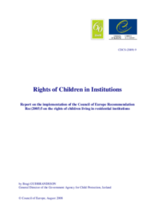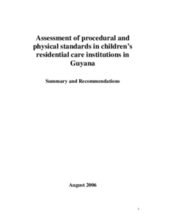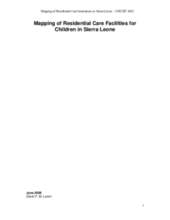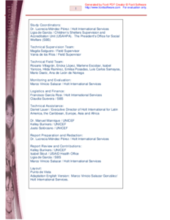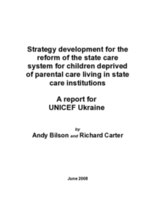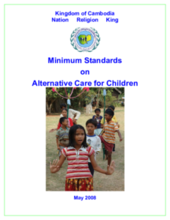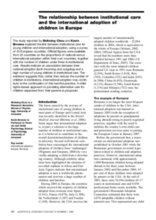Displaying 1371 - 1380 of 1510
Manual to assist countries in strengthening their information system around children in formal care through data collection around 15 global indicators
Evaluation of the need for increased understanding and inclusive responses to highly marginalized and separated children.
This report provides an assessment of the current situation with regards to rights of children in institutions in 42 Council of Europe member states.
Examines the capacity of childcare institutions and the monitoring and reintegration meausures necessary to ensure child safety in such.
Mapping of existing facilities caring for children in residential capacity for use in developing child protection standards
In this meta-analysis of 75 studies on more than 3,888 children in 19 different countries, the intellectual development of children living in children's homes (orphanages) was compared with that of children living with their (foster) families.
Assesses the causes and realities of children living in institutions in Guatemala with recommendations for systemic reform.
This report written for UNICEF identifies the key elements for a strategy to take forward the Government of Ukraine’s programme for the reform of child welfare.
This document includes the Minimum Standards on Alternative Care for Children set out by the Government of Cambodia, including both the Minimum Standards for Residential Care for Children and the Minimum Standards on Alternative Care for Children in the Community.
Explores causal relationship between increased international adoption and increase in institutional care of children in Europe.

